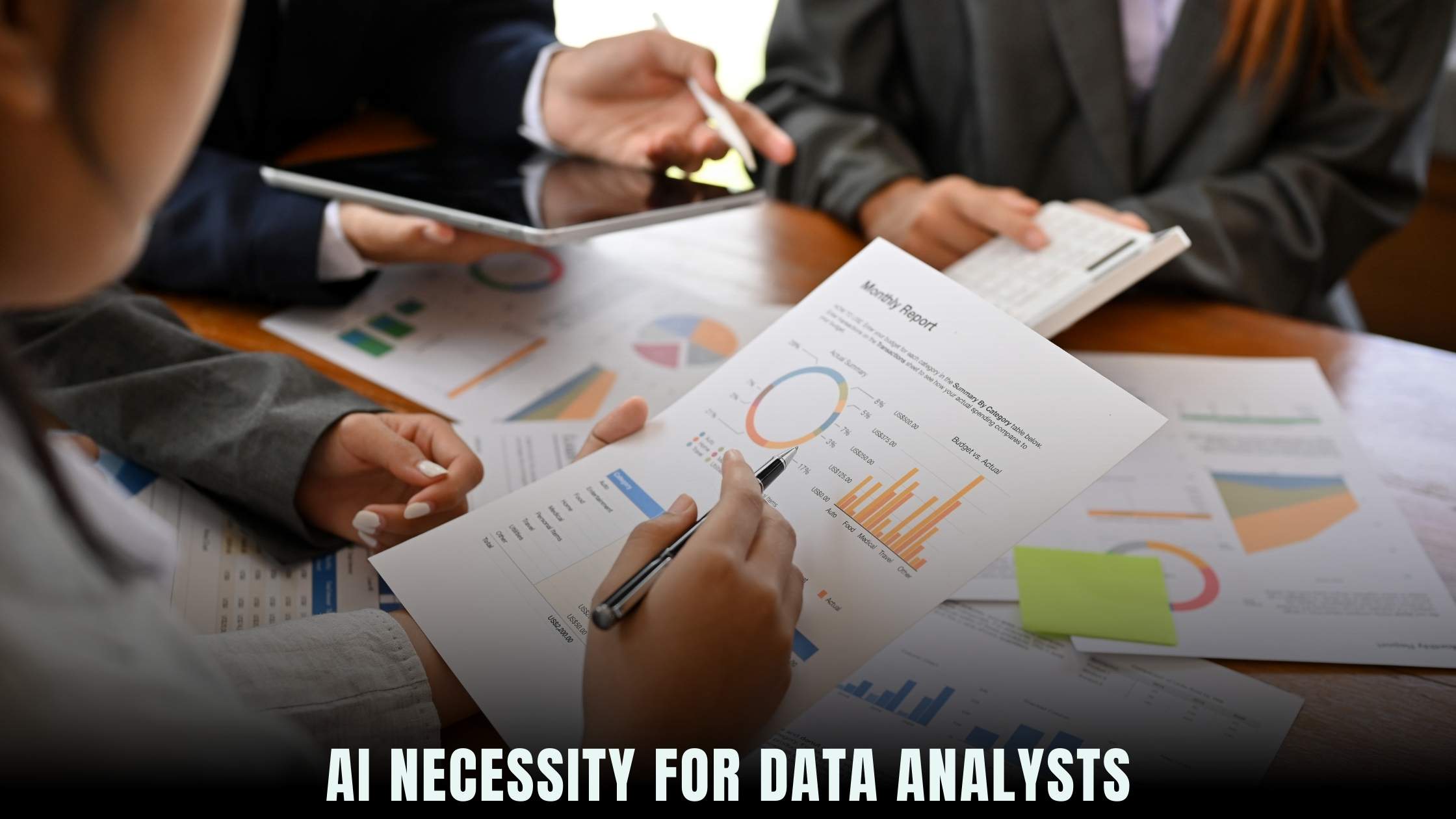AI Necessity for Data Analysts: Expert Insights
- AI Image Generators Software AI Writing Assistant Popular Tools AI Tools


In today’s data-driven world, the role of data analysts has become increasingly crucial across industries. As businesses strive to extract actionable insights from vast amounts of data, the integration of artificial intelligence (AI) has emerged as a necessity for data analysts. But why exactly is AI indispensable for data analysts? In this comprehensive article, we delve into the expert insights to uncover the significance of AI in enhancing the capabilities and effectiveness of data analysts.
Understanding the Importance of AI for Data Analysts
Data analysts play a pivotal role in deciphering complex datasets, identifying patterns, and deriving actionable insights to drive business decision-making. However, the sheer volume and complexity of data generated today present significant challenges for traditional analytical methods. This is where AI comes into play, offering advanced capabilities and tools to augment the analytical prowess of data analysts. Let’s explore why AI is indispensable for data analysts:
1. Handling Big Data Complexity
One of the primary challenges faced by data analysts is the management and analysis of big data, characterized by large volumes, high velocity, and diverse formats. AI-powered tools, such as machine learning algorithms and natural language processing (NLP) techniques, enable data analysts to process and analyze massive datasets with unprecedented speed and accuracy, uncovering valuable insights that may remain hidden using traditional methods.
2. Automated Data Processing
AI facilitates automated data processing, allowing data analysts to streamline repetitive tasks such as data cleansing, preprocessing, and transformation. By leveraging AI-driven automation tools, data analysts can focus their efforts on high-value tasks such as exploratory data analysis, model development, and insights interpretation, thereby boosting productivity and efficiency.
3. Advanced Predictive Analytics
AI empowers data analysts to harness the power of predictive analytics to forecast future trends, behaviors, and outcomes based on historical data patterns. Machine learning algorithms, predictive modeling techniques, and deep learning frameworks enable data analysts to develop accurate predictive models, identify potential risks and opportunities, and optimize business strategies for maximum impact.
4. Enhanced Decision Support
AI serves as a powerful decision support tool for data analysts, providing them with actionable insights and recommendations to guide strategic decision-making processes. By integrating AI-driven analytics platforms and decision support systems into their workflow, data analysts can make data-driven decisions backed by sophisticated analytics, scenario modeling, and simulation capabilities.
5. Continuous Learning and Improvement
AI facilitates continuous learning and improvement for data analysts through adaptive algorithms and self-learning systems. By analyzing data patterns, feedback loops, and model performance metrics, AI-powered analytics platforms enable data analysts to iteratively refine their models, algorithms, and analytical approaches, ensuring ongoing optimization and relevance in dynamic business environments.
Relevant SaaS Products for AI-Driven Data Analytics
To support the AI-driven analytical needs of data analysts, several SaaS products offer advanced AI and machine learning capabilities tailored for data analytics. Here are some relevant SaaS products that empower data analysts with AI-driven insights and solutions:
1. Tableau
Tableau is a powerful data visualization platform that integrates AI-powered analytics, natural language processing, and predictive modeling capabilities. With Tableau, data analysts can create interactive dashboards, uncover hidden patterns in data, and share actionable insights with stakeholders for informed decision-making.
2. DataRobot
DataRobot is an automated machine learning platform that enables data analysts to build, deploy, and manage predictive models at scale. With DataRobot, data analysts can automate the end-to-end machine learning process, from data preparation and feature engineering to model training and deployment, accelerating time-to-insight and driving business value.
3. Databricks
Databricks is a unified analytics platform that combines AI, machine learning, and big data processing capabilities in a single collaborative environment. With Databricks, data analysts can leverage scalable data engineering tools, interactive SQL queries, and AI-driven analytics to derive actionable insights from large and complex datasets.
4. RapidMiner
RapidMiner is an end-to-end data science platform that empowers data analysts to perform advanced analytics, machine learning, and predictive modeling tasks with ease. With RapidMiner, data analysts can access a rich library of pre-built machine learning algorithms, automate model deployment, and visualize insights for effective communication and decision-making.
5. Alteryx
Alteryx is a comprehensive analytics automation platform that enables data analysts to blend, prep, and analyze data from disparate sources without coding. With Alteryx, data analysts can streamline their data preparation workflows, perform advanced analytics tasks, and generate actionable insights faster, driving business agility and innovation.
To access premium AI-driven data analytics solutions mentioned in this article and unlock exclusive deals and discounts, businesses can leverage Subscribed.FYI Deals. By signing up for free, users can explore a curated selection of SaaS products tailored for data analysts, empowering them to harness the power of AI and drive data-driven decision-making with confidence.
Relevant Product Links:








